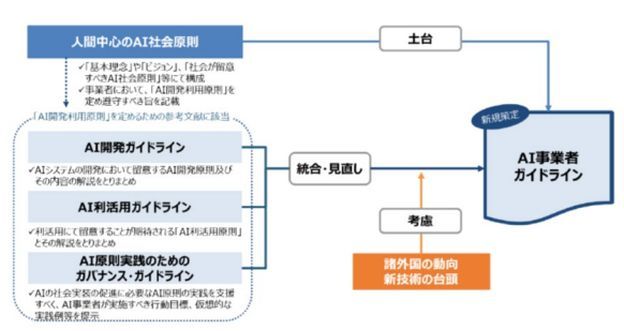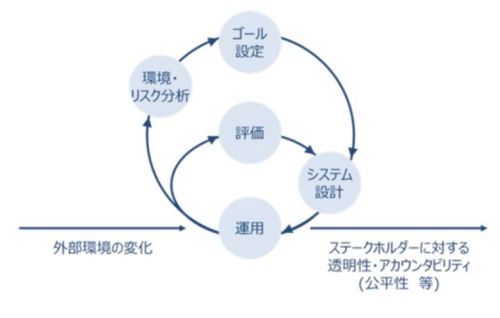- within Technology topic(s)
- in United States
- in United States
1. Introduction
In Japan, a number of guidelines that examine the principles for handling AI have been published, and AI thus operators have had to refer to multiple guidelines. In view of the need to resolve this situation and the fact that these guidelines do not pay particular attention to the recent boom in generative AI, the government is currently discussing new 'Guidelines for AI Operators' ("GL") (of which the present author has participated in the drafting stage). As the GL is currently being finalised based on public comments, in the submission of which the public has been invited to participate until mid-February 2024, this article will use as its basis the wording of the GL at the time of the call for public comments. Note that it is the intention of the drafters that the GL will be positioned as a living document that is envisaged to be updated from time to time.
2. Positioning of the GL
The GL has been prepared as a guideline that integrates the contents of AI R&D Guidelines, AI Utilisation Guidelines, and Governance Guidelines for Implementation of AI Principles, while being based on the Principles for a Human-Centric AI Society.

3. Outline of the GL
In order to provide guidelines for the conduct of operators, the GL sets out the following ten principles to be jointly observed by all AI operators (Part 2), and then classifies operators into the categories of AI developers (Part 3), AI providers (Part 4) and AI users (Part 5), explaining how they should act based on the guidelines for observing each principle. The report describes, with specific points to bear in mind, how AI developers, AI providers and AI users should act to ensure compliance with each principle in light of the guidelines.
[The seven principles to be addressed in the development, provision and use of AI systems and services]
- Human-centred principle
- Principle of safety
- Principle of fairness
- Principle of privacy protection
- Principle of ensuring security
- Principle of transparency
- Principle of accountability
[The three principles that should be addressed in cooperation with society at large].
- Principle of education and literacy
- Principle of ensuring fair competition
- Principle of innovation
AI operators are required to establish appropriate governance mechanisms under the leadership of management in order to put the above ten principles and their guidelines into practice. However, since the rate of change in AI-related technologies and services is unprecedented, and the goals that governance aims to achieve are constantly changing, the practice of 'agile governance' is to be encouraged when approaching the issue of AI. In practice, this means that a "double cycle" consisting of the implementation of an environment and risk analysis phase, a goal-setting phase, a systems design phase, and an operations phase, should be continuously and rapidly engaged in by multiple stakeholders.

Originally published Mar 26, 2024
The content of this article is intended to provide a general guide to the subject matter. Specialist advice should be sought about your specific circumstances.
[View Source]

